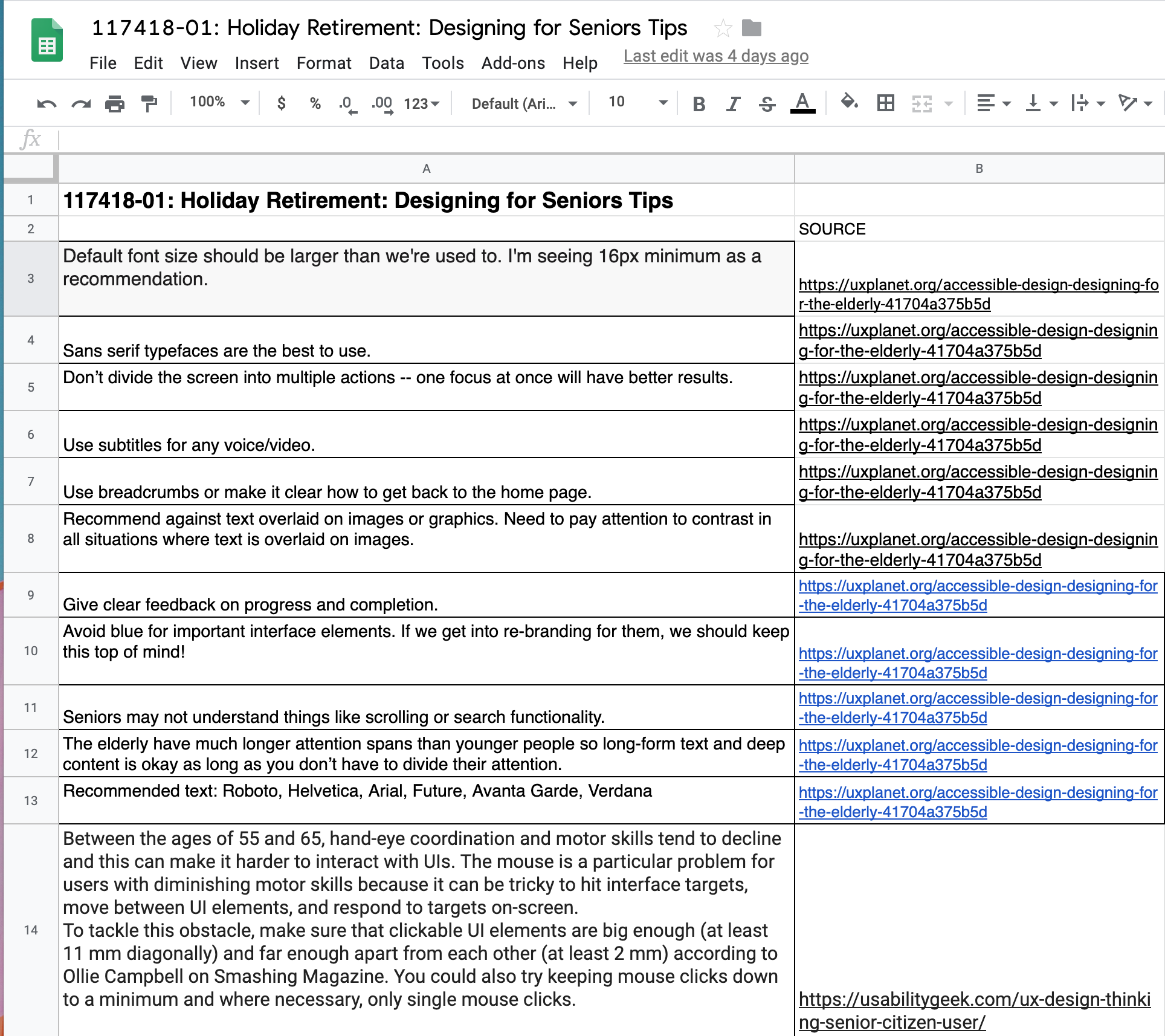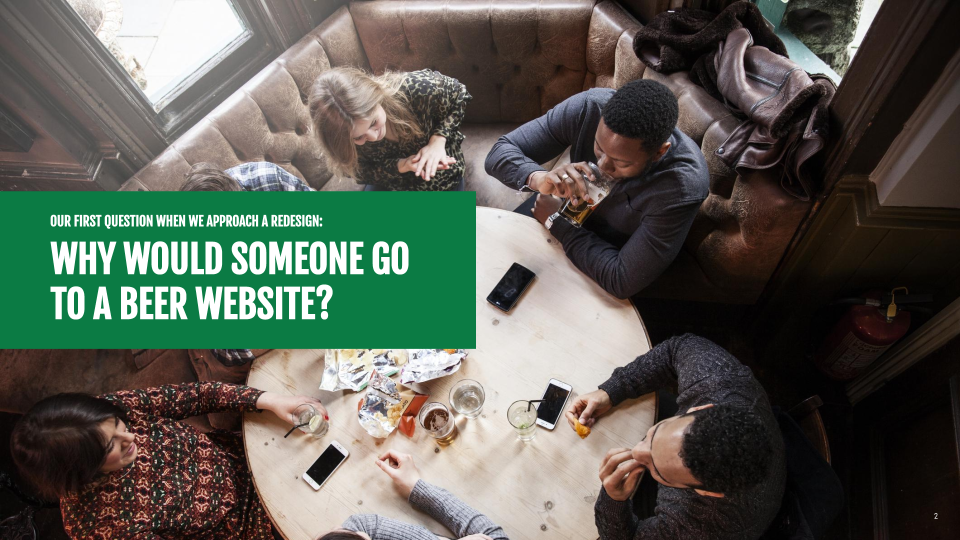
Frameworks for Evaluating Experiences

Frameworks for Evaluating experiences
During my tenure at 22Squared, I explored and built out a number of different frameworks that were used for evaluating experiences, to get a better sense of the current state of a given client’s experiences, to measure our clients’ efforts against those of their competitors and to uncover insights and opportunities that going through this kind of exercise can tease out.
My role in these projects:
Conduct stakeholder and user interviews
Gather and evaluate third-party research
Theorize and build out templates for evaluations
Systematic evaluation of various experiences
Codify results of evaluations
Present findings and insights to clients
YEARS: 2015 — 2021
22Squared
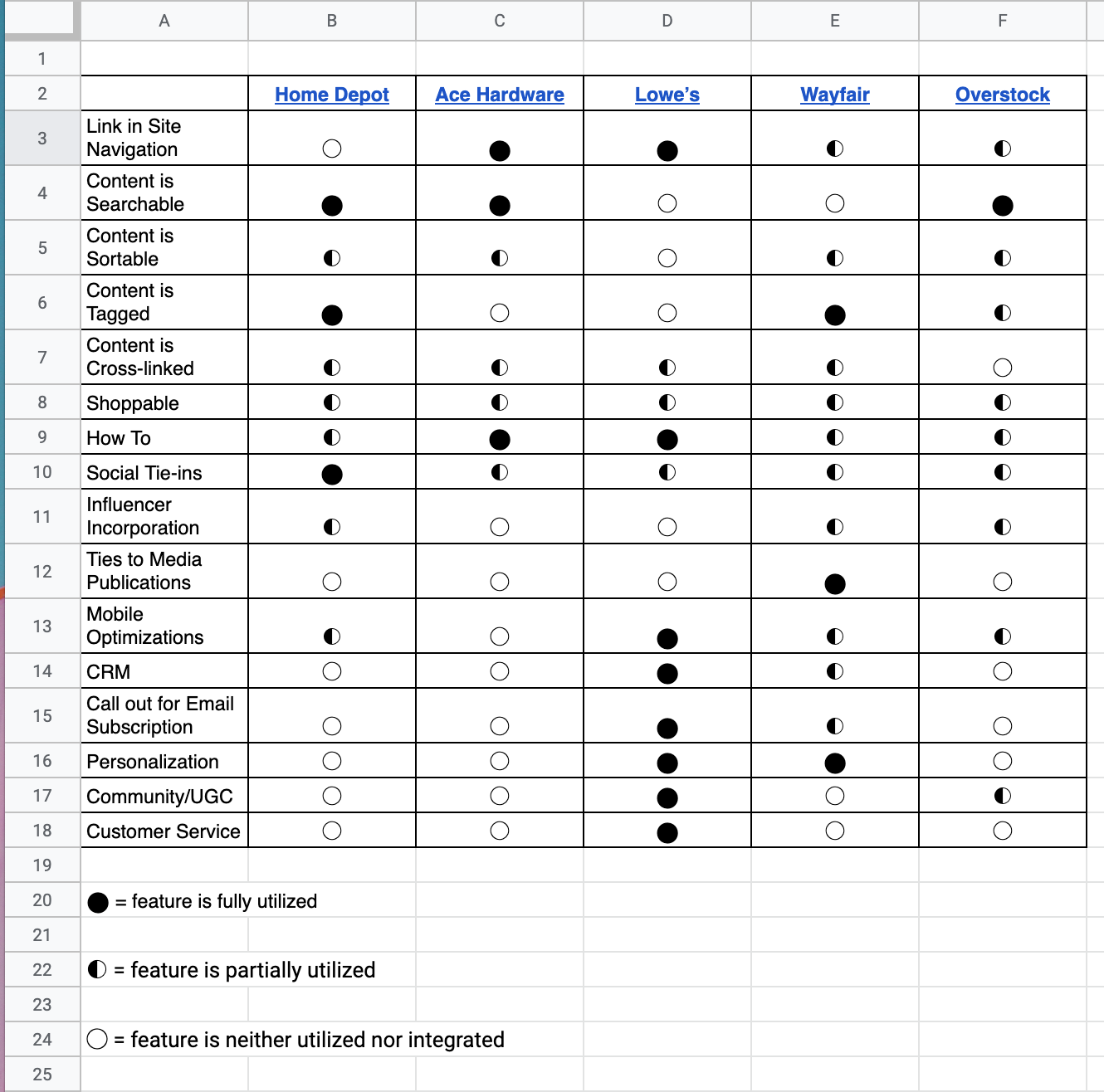
Feature and functionality matrix, comparing Home Depot blog features to those of its competitors.
Year: 2016
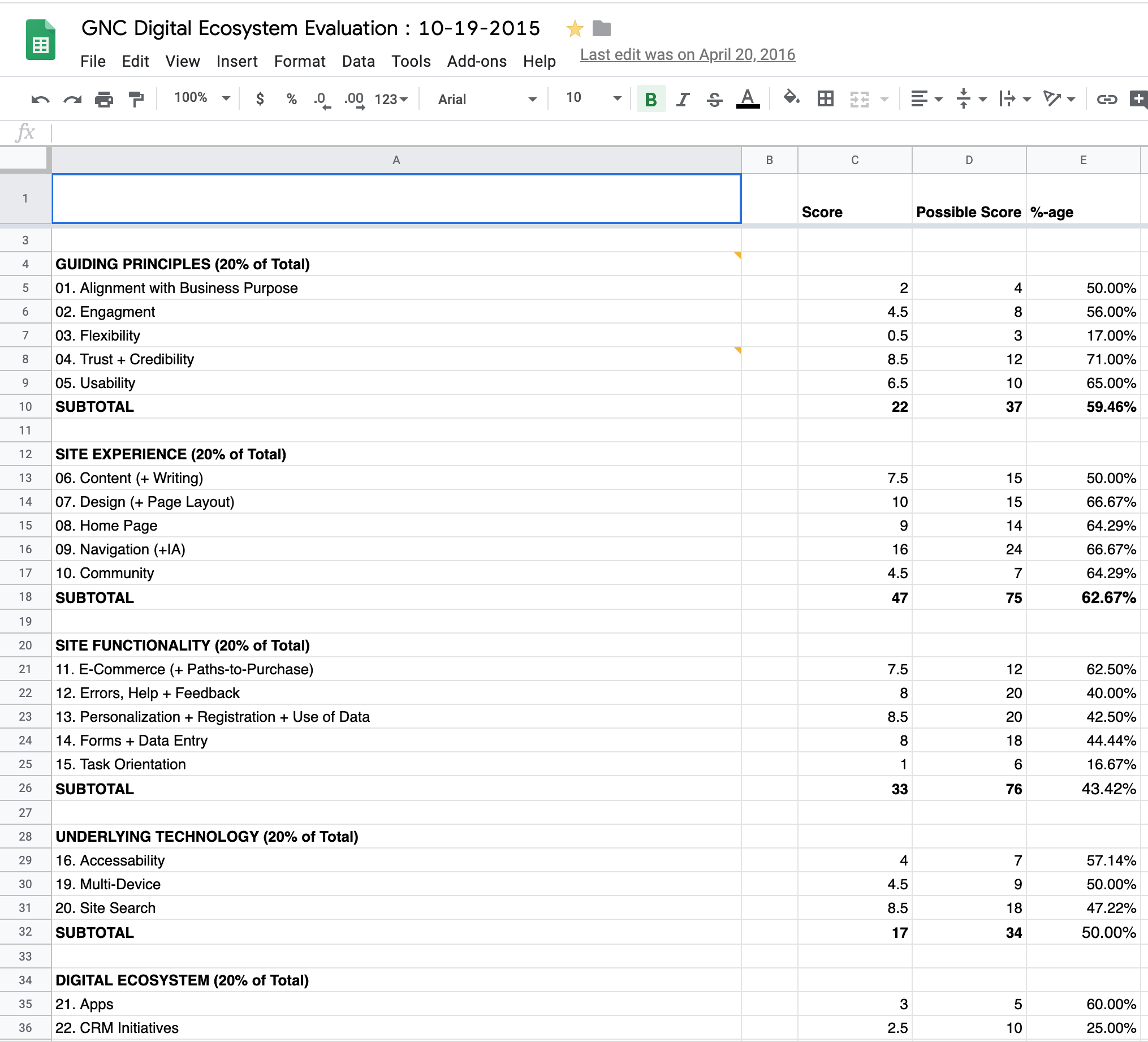
For GNC, we modified the typical user experience heuristic evaluation model and extended it to encompass additional offerings or services provided by 22squared: Content, CRM, Design, Personalization, etc.
Year: 2015

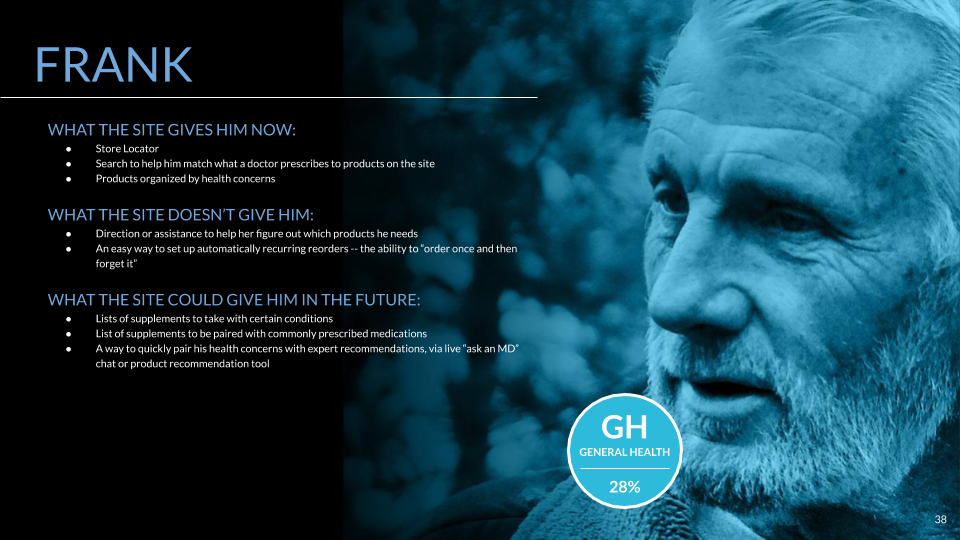
We used our findings to identify content, feature and functionality gaps as well as opportunities in the experience and aligned those findings with the persona that had been developed by our brand strategy team.

And visualized where different pieces of their current experience fell on an educational-sales to expert-novice matrix.
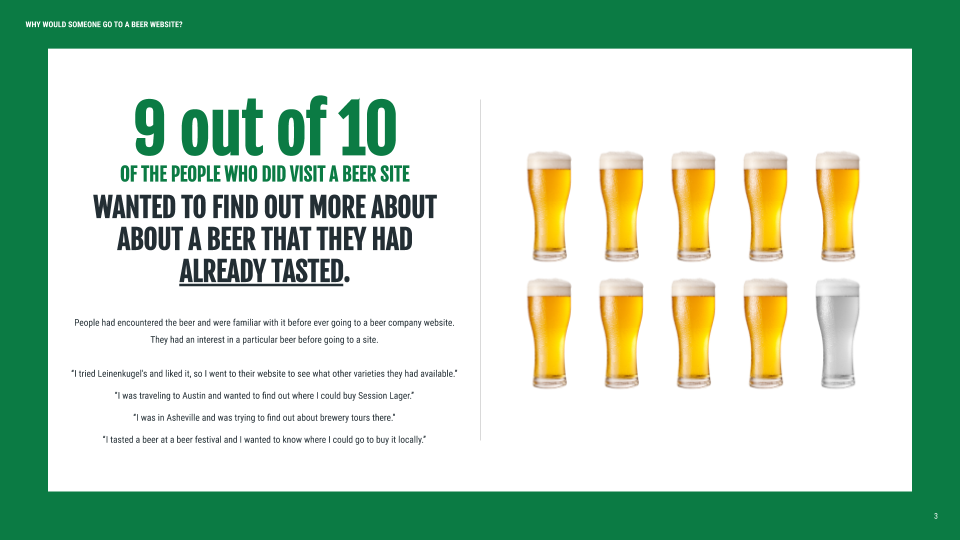
For Sweetwater Beer, we combined an evaluation of the current experience with customer interviews and a convening of disciplinary experts from across the agency (account, media, strategy, analytics, development) going through the experience with those experts in turn and collating the insights gathered into an all-inclusive presentation for the client.
Year: 2017
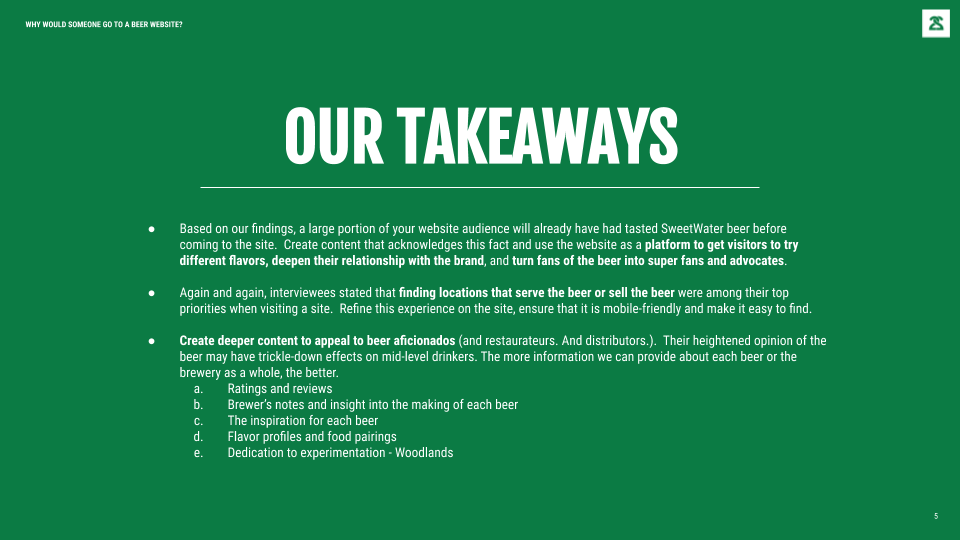

Distilling our findings into a set of top-level recommendations.
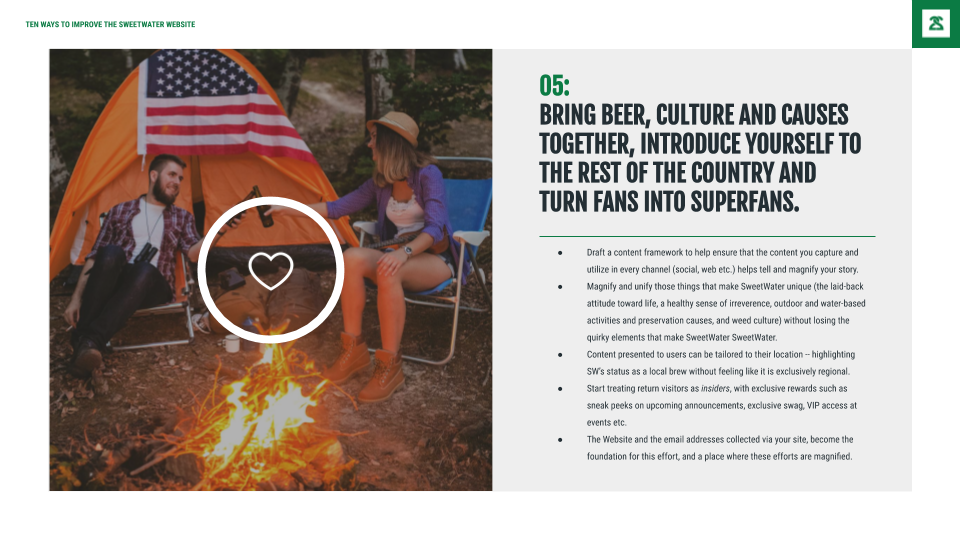
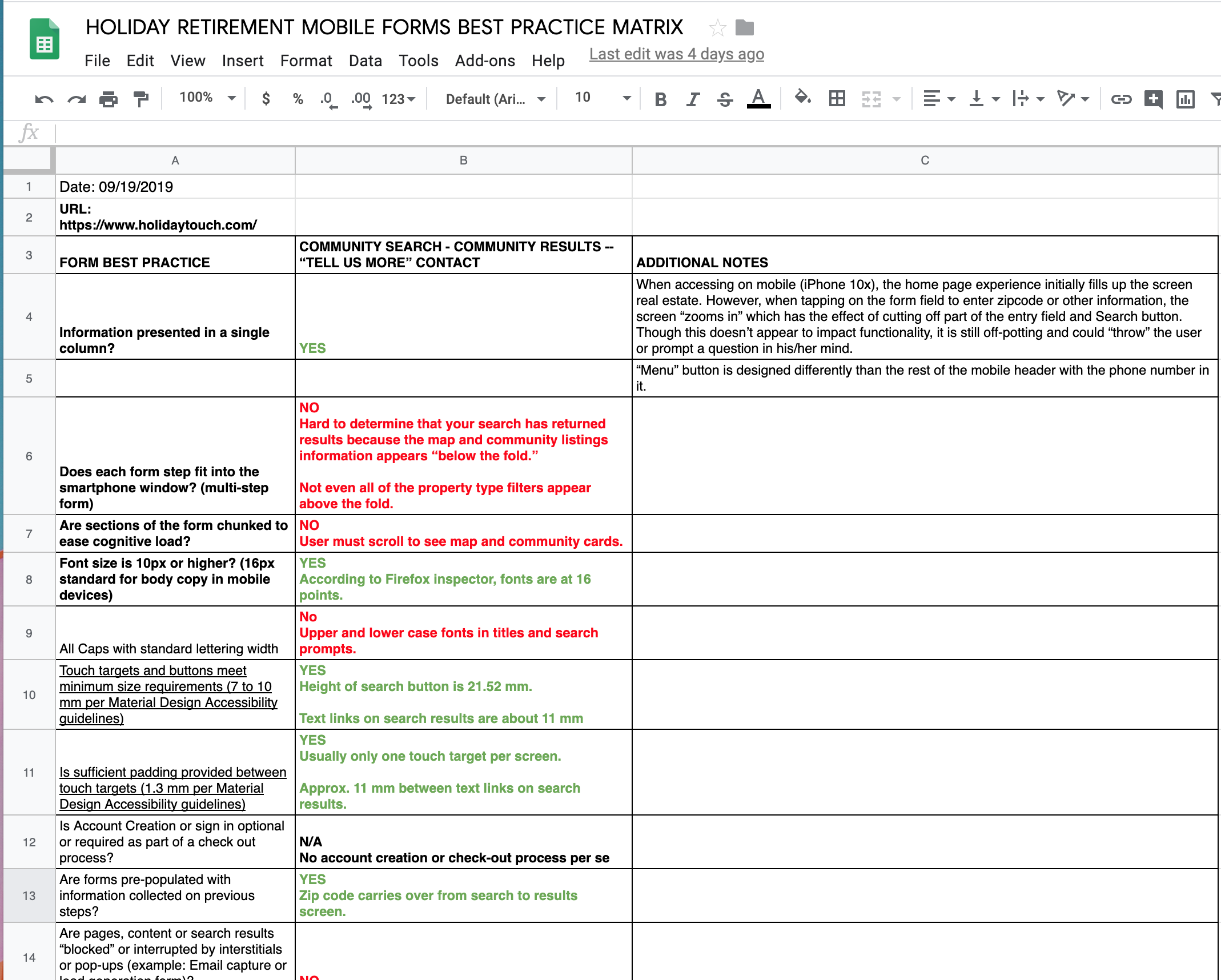
For Holiday Retirement, Southeast Toyota and other clients, we developed a series of “best practice guidelines” for very specific aspects of experiences (form usage, accessible design, etc.) and used those as frameworks to judge current experiences and the experiences we are developing for clients.
Years: 2019-2021
